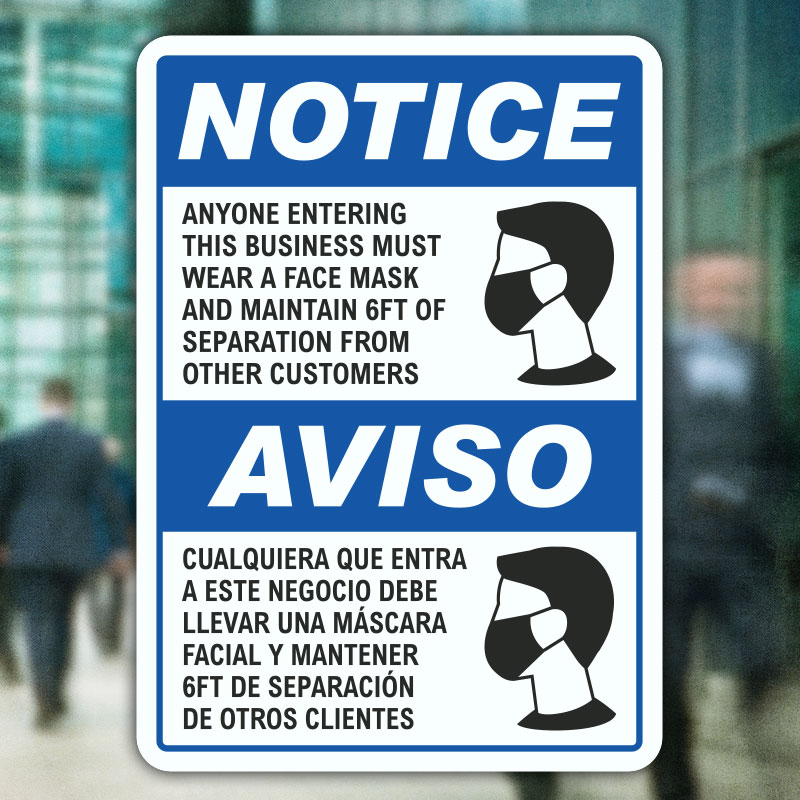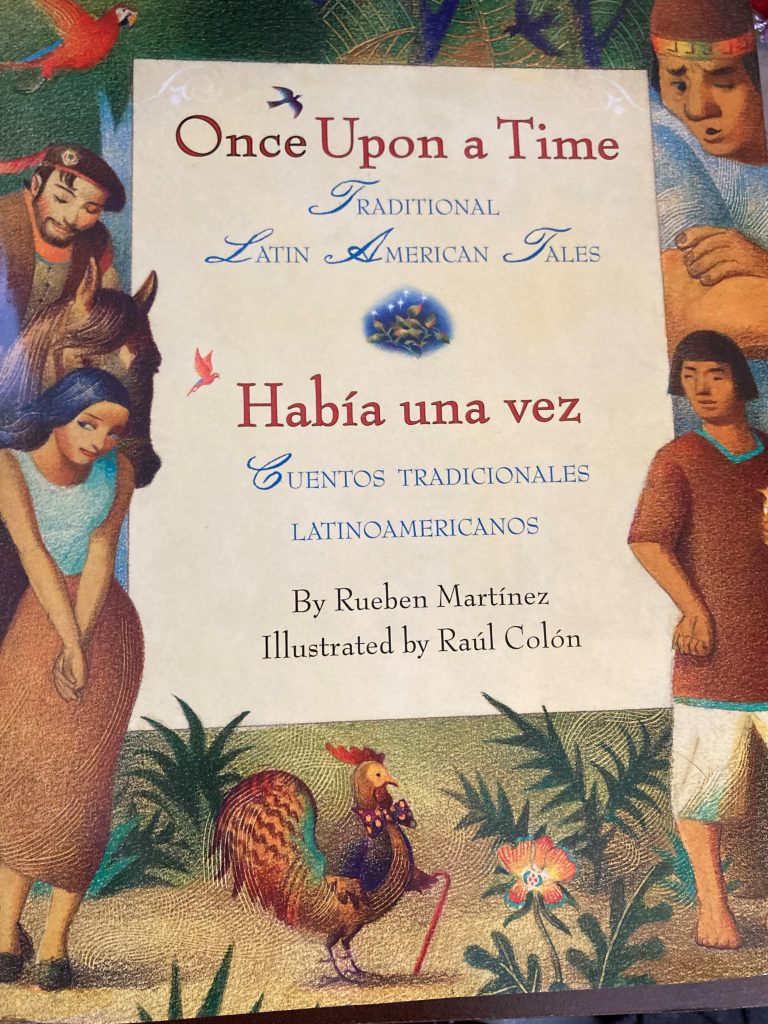Exploring Culture
I found that it was easier to search for specific statistics in Spanish than English. English results were often outdated by a year or more and usually little more than vague generalizations. Whereas in Spanish, I was able to find a larger volume of accurate and up to date information. The only downside to looking up things in Spanish is it would take longer as I would have to translate the information and sift through many extraneous articles. I used context clues to help me and a dictionary when there were too many unfamiliar words. In the end, I benefited from all the practice afforded me by researching cultural topics in another language.
In class we learned about how many Spanish speaking countries have a restful period after lunch called la siesta. For example, in Colombia, it is very common for workers to go home for lunch and spend thirty minutes after eating to rest or nap.
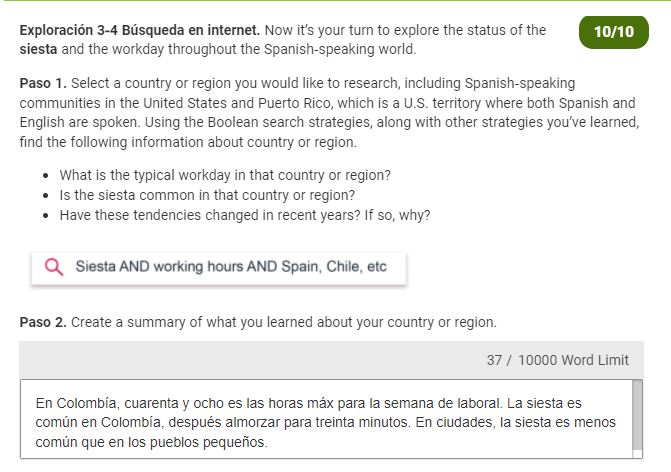
We also compared Universities in Spanish speaking countries to our own university, ODU. I choose the University of Valencia in Spain, whose website was absolutely beautiful and all in Spanish!
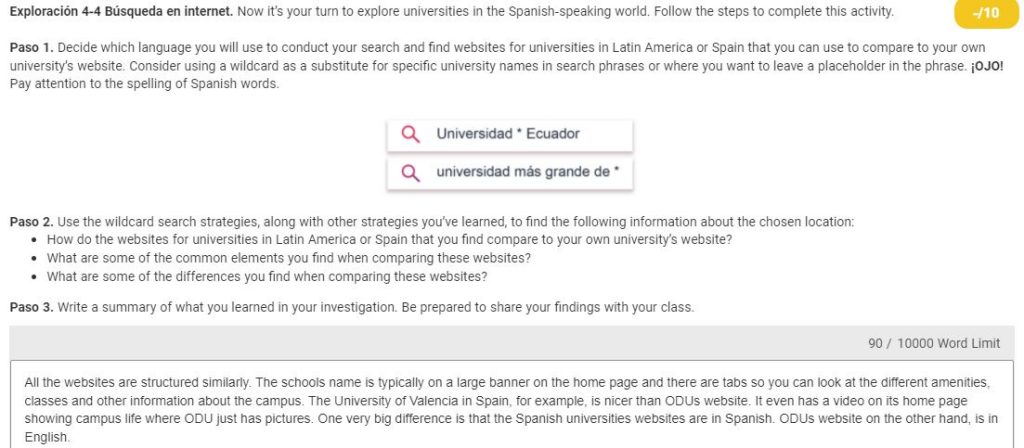
Researching about other cultures in their native language has opened my eyes to just how vast and diverse our world actually is. We are cut off from so much information when we only focus on those articles in English or what is provided to us from a search in our native languages.
Engaging in Communities
My hope in the future is to use my knowledge of Spanish to be able to effectively communicate on research trips abroad to South America. Becoming bilingual will be an invaluable tool when arranging trips, sharing knowledge with my fellow researchers and being able to reach a wider audience about the importance of conservation and good stewardship of our natural resources.

Interpersonal Communication
In class this semester we communicated in many different ways. During class, we would practice having conversations with our partners and use discussion boards to comment on our classmates work and to encourage one another. We have also participated in graded oral interviews with our professor and even conducted interviews ourselves.
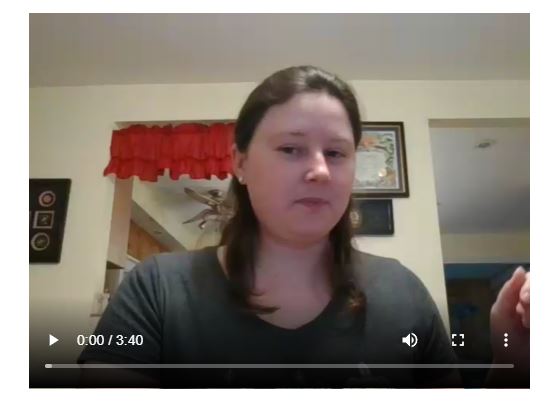
I have not always felt confident about my ability to recall vocabulary words under pressure but flashcards and repitition have increased my ability to hold a basic conversation in Spanish.
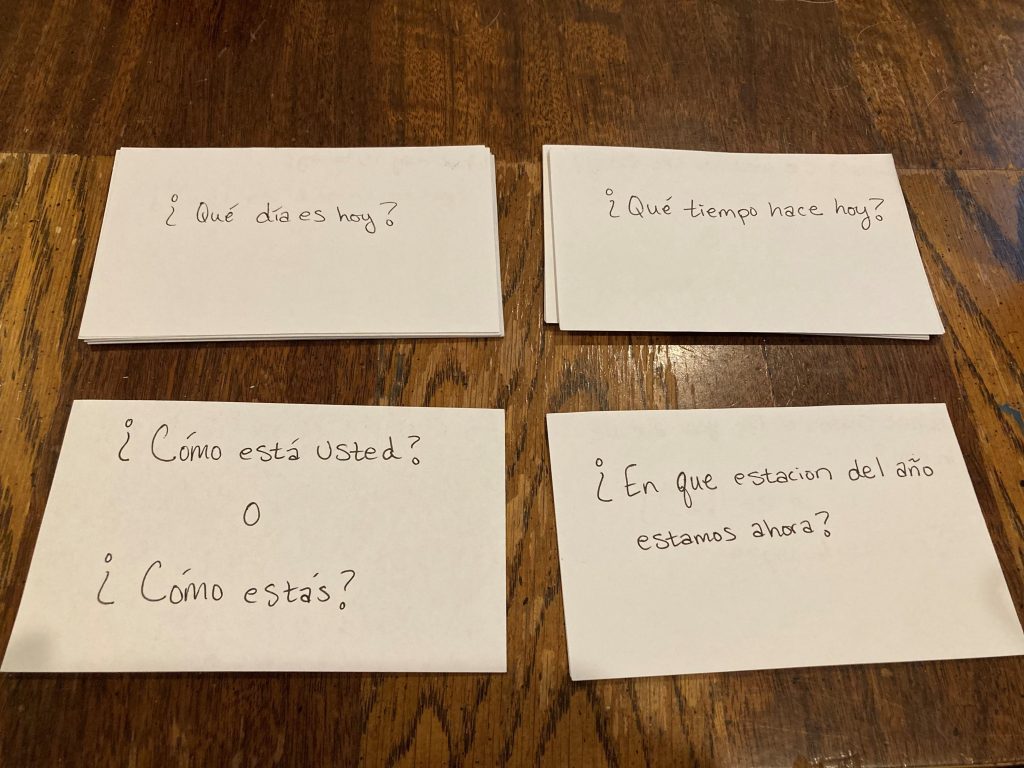
Presentational Speaking
We made multiple videos this semester about various topics. One of which was a presentation about our own campus where we discussed the different buildings we frequented, what we liked and disliked about them and what activities we participated in while there.

I, like many others, struggle speaking in public and by extension, these videos were somewhat difficult for me. But I practiced what I was going to say many times and being able to redo the videos until I was satisfied with its quality really helped.
Presentational Writing
We wrote a lot for this course. From completing a daily schedule, to updating our “about me” bios, and even composing a letter about someone we admire.
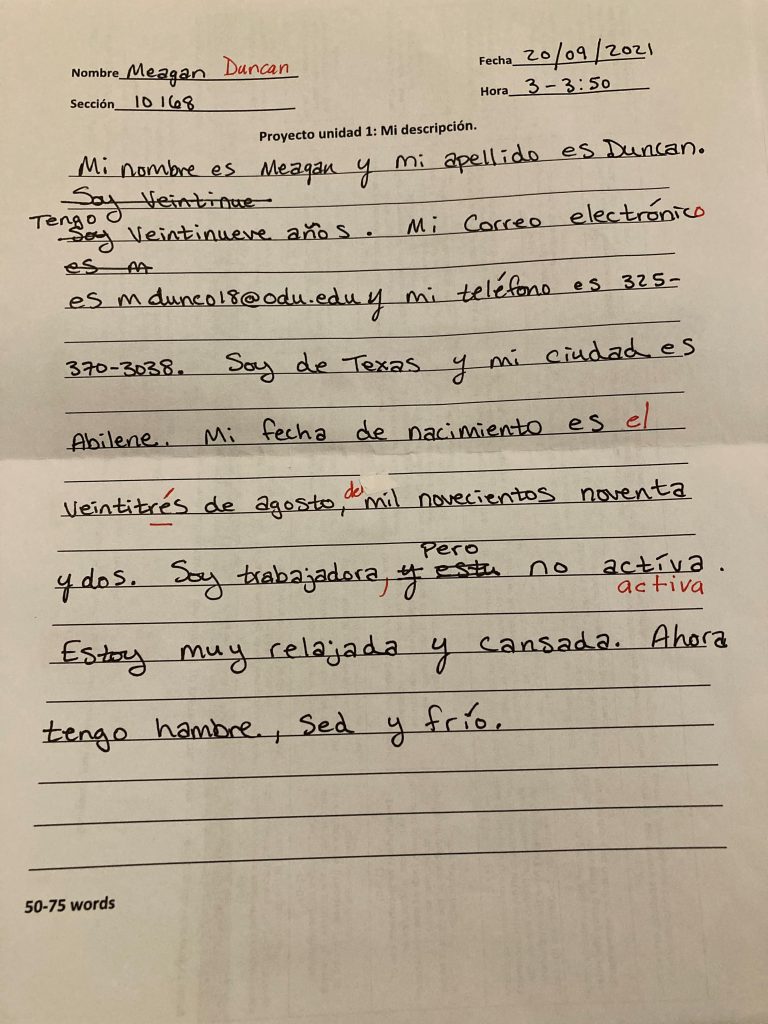
The thing I struggle with the most while writing is using the correct grammar, particularly when conjugating verbs. In order to remember the correct conjugations, I would write out charts for difficult verbs and review them like flashcards.
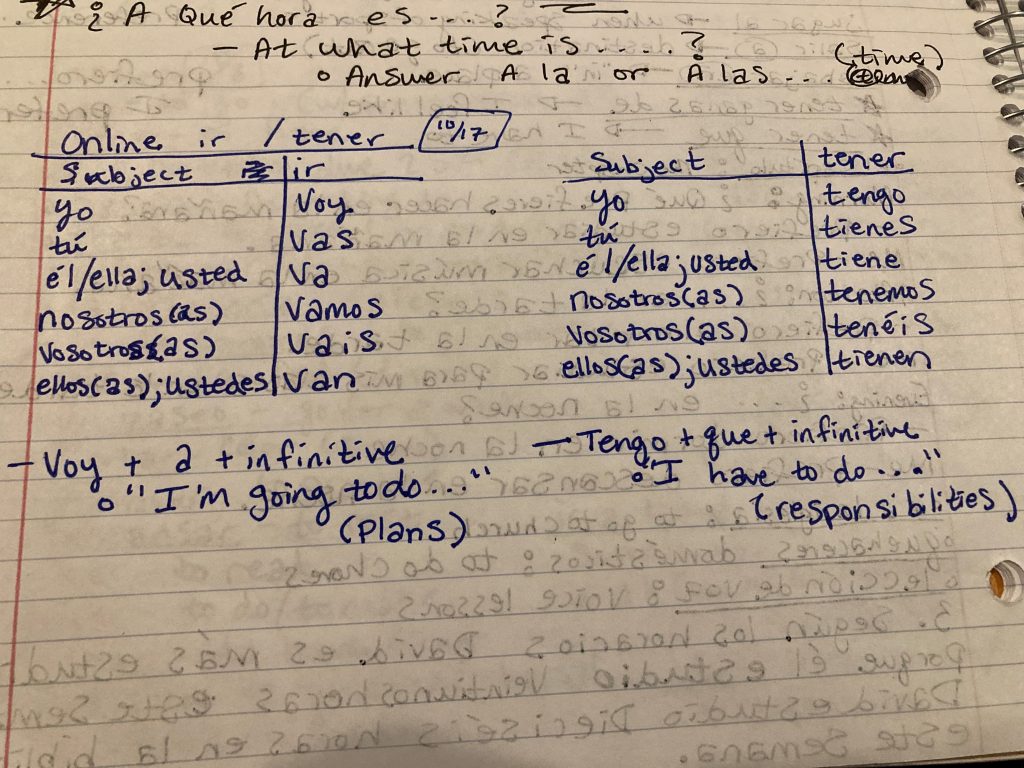
Interpretive Listening
We have had many assignments throughout our book that required us to listen to everything from individuals’ words to full-length sentences and then respond appropriately. Our professor also will address us in class by asking questions and giving prompts in Spanish, which helps me practice interpretive listening. I also enjoy many songs that are entirely in Spanish and translating these while I’m singing along makes practicing more enjoyable.
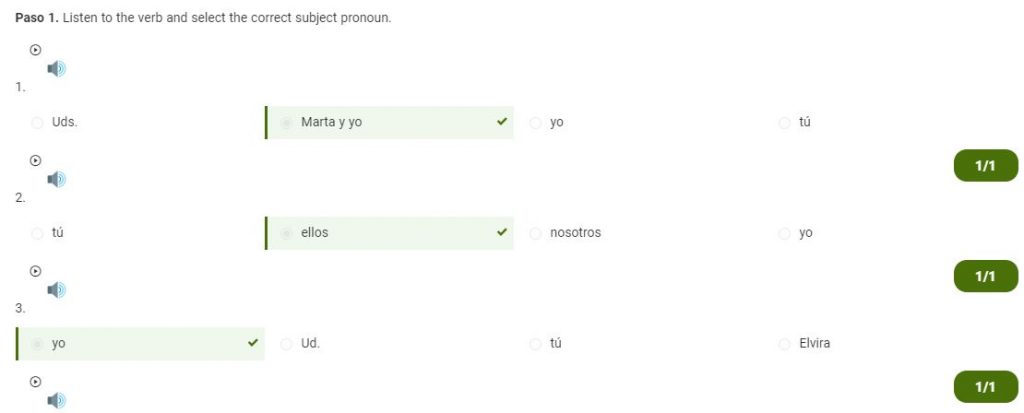
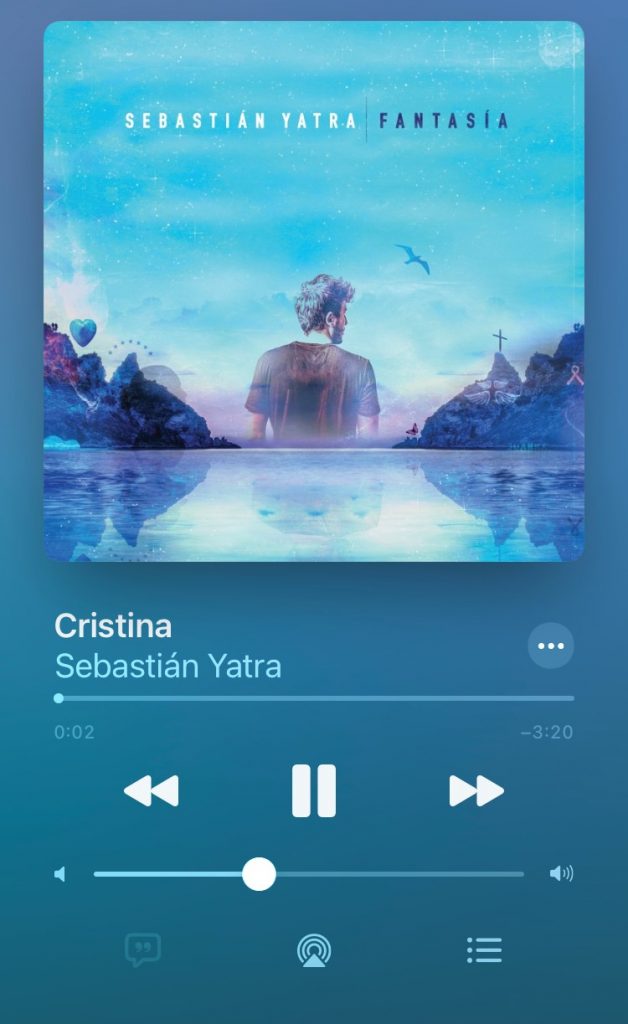
This skill is the one I struggle with the most. It often takes me many tries to correctly interpret what someone is saying. I usually have to ask for phrases to be repeated, words to be clarified or for the speaker to slow down so it’s easier for me to understand them. Repetition is one of the few things that has helped as well as preparing for our oral interviews.
Interpretive Reading
I feel most comfortable with this skill. I practice it often, not only during class but also in my daily life. I practice by reading public signs that are posted in Spanish, turning on the Spanish subtitles when I’m watching a movie, and I even purchased a children’s book of fairy tales titled, “Habia Una Vez”, which I practice translating as I read.
